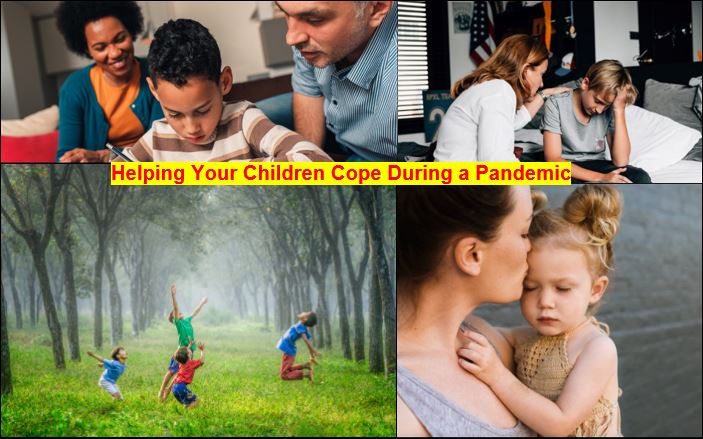The Covid-19 pandemic has uprooted our lives, but it has altered the lives of our kids as well. Therapy can help both children and adults significantly and if you are interested in learning more, check out this article on interpersonal therapy. The effects of quarantine, social distancing, working and schooling from home, and masks are seeping quickly into our day to day lives.
The “new normal” is here and we have to learn to cope with it. Children often have a harder time knowing how to deal with their emotions, so it is good to know how to help them as their parent or guardian.
The Pandemic and Children
Research indicates that children are developing feelings of sadness, anxiety, and fear. They are more likely now to be afraid of death and isolation. Children have less opportunity for social interaction because, as important as it is, parents do not want to put them at unnecessary risk.
Schools have been closed or operate solely online. If they are open, masks and social distancing have been implemented for safety. Children are now experiencing much of the same mental effects of the pandemic as adults. Humans are social animals, and the pandemic has made it difficult to find interaction.
Children also do not have the same stress and emotion management techniques that adults possess. Sometimes these bottled-up emotions are represented through irritability and anger.
Helping Your Child Cope
There are a lot of things you can easily do to help your child deal with their emotions and remain happy even during these tough times.
Love and Affection
One of the most important things you can do is to show your children lots of love and affection. Try to be a role model so that their perception of the environment remains positive. You may also have more time around your children if you are working from home. This is especially true if your children are learning at home too.
Structure
Children also require structure, so even if they are not going to school it is best to have a daily routine in place. Try to spend quality time with them to separate school/work life from family life. It is also important to go outside and interact with nature to deal with the isolation.
It may also be a good idea to discuss daily schedules with your children. Giving them the chance to participate and tell you their needs and desires can help them feel needed and in control.
Talk
It is important to speak with your children about their feelings as well as Covid-19. Always speak truthfully and try not to be condescending. Speak in a way that they can understand and identify with. Make sure they understand that they can talk to you at any time.
Open-ended questions can help ease your child into expressing their emotions. You can ask how they are feeling about their experiences. This is a great way to talk to any age group and you need to continue talking to them through the years because their feelings will change drastically over time.
It is important that you address the pandemic itself. Ask about their concerns, worries, and fears about the virus and the changes it has caused. You can also use this as a time to educate them about washing their hands, covering their mouths when they cough or sneeze, and other personal hygiene necessities.
Mindfulness
There are mindfulness techniques that are meant specifically for children. Teaching your child how to meditate can be fun and provide them with a way to cope with their stress for the rest of their lives. There are even some games and activities that can help ease them into mindfulness slowly.
In Conclusion
There is a lot you can do to help your kids deal with their emotions and manage their day to day lives during the pandemic. Always be sure to treat them as people and be aware of their age. Speak to them, show them that you love and care about them, and provide them with the support they need during the abnormal times. They, like us, have experienced strong emotions tied to the virus and need reassurance.






